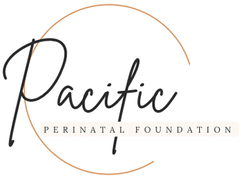Touching the Earth
|
How we help
The Pacific Perinatal Foundation provides support for individuals and families who experience reproductive trauma through early pregnancy loss, recurrent pregnancy loss, stillbirth, infertility, or other difficult pregnancy-related events.
Accurate data about reproductive trauma is challenging to obtain, partly because these pregnancy-related events often occur outside of medical institutions (i.e. at home and not in the hospital). In British Columbia each year there are an estimated 11,000-14,000 early pregnancy losses, 500-600 stillbirths and 12-15% of couples will struggle with infertility. Early pregnancy loss and infertility often occur with minimal or no medical support leaving people alone to navigate the impact.
The following principles guide the Pacific Perinatal Foundation and the services we provide:
Services:
The Pacific Perinatal Foundation strategically integrates hospital and community-based services to provide seamless support through the clinical, emotional, psychological, and spiritual experience of pregnancy loss and reproductive trauma. The Foundation services have a broad reach that includes grass-roots peer to peer support, community events, community-based care and hospital-based care. At the core of the Pacific Perinatal Foundation services are collaborative and integrated community volunteers with lived experience, midwives, perinatal care physicians, social workers, counsellors, acupuncturists and mindfulness instructors who work towards the common goal of helping heal reproductive trauma.
Our services are designed to be inclusive regardless of race or gender identity. We acknowledge that everyone’s life path can significantly affect how they experience pregnancy loss and reproductive trauma, and we aim to provide care that is sensitive, honouring, and respectful.
The Pacific Perinatal Foundation is based in Victoria, British Columbia, however we provide services across Vancouver Island due to the integration of in-person and virtual care platforms.
Accurate data about reproductive trauma is challenging to obtain, partly because these pregnancy-related events often occur outside of medical institutions (i.e. at home and not in the hospital). In British Columbia each year there are an estimated 11,000-14,000 early pregnancy losses, 500-600 stillbirths and 12-15% of couples will struggle with infertility. Early pregnancy loss and infertility often occur with minimal or no medical support leaving people alone to navigate the impact.
The following principles guide the Pacific Perinatal Foundation and the services we provide:
- Families and individual benefit from seamless, integrated, connected services following pregnancy loss or reproductive trauma;
- A community of empathetic, compassionate, and skilled care providers are fundamental to creating a therapeutic alliance, supportive service, and healing environment;
- & client-centered care best meets the needs of individual and families.
Services:
The Pacific Perinatal Foundation strategically integrates hospital and community-based services to provide seamless support through the clinical, emotional, psychological, and spiritual experience of pregnancy loss and reproductive trauma. The Foundation services have a broad reach that includes grass-roots peer to peer support, community events, community-based care and hospital-based care. At the core of the Pacific Perinatal Foundation services are collaborative and integrated community volunteers with lived experience, midwives, perinatal care physicians, social workers, counsellors, acupuncturists and mindfulness instructors who work towards the common goal of helping heal reproductive trauma.
Our services are designed to be inclusive regardless of race or gender identity. We acknowledge that everyone’s life path can significantly affect how they experience pregnancy loss and reproductive trauma, and we aim to provide care that is sensitive, honouring, and respectful.
The Pacific Perinatal Foundation is based in Victoria, British Columbia, however we provide services across Vancouver Island due to the integration of in-person and virtual care platforms.


